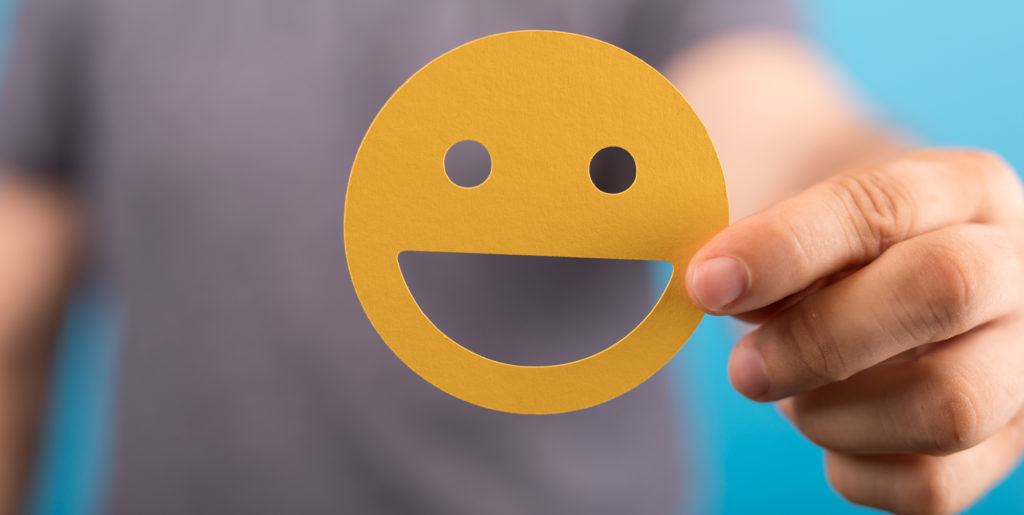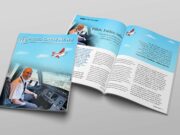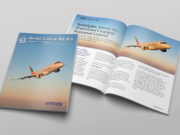
Despite having the best view of the world from your “office window,” varied travel destinations year-round, and the ability to conquer the elements on a daily basis, you (and almost 50 percent of U.S. employees) may not feel satisfied with your job.1 Although “being satisfied” is not the same as “being happy” with a job, happiness at work is very personal and complex. Research shows that people become happier if they can achieve intrinsic goals in their work that help fulfill basic needs, such as autonomy, competence and social contacts. Starting today, take matters into your own hands to make your job more enjoyable.
1. Be as autonomous as possible
Those who have influence over how their work is structured or managed, are likely to be happier than those who do not. Even if a large part of your job is predetermined, look for the things that you can adjust. You can make your own decisions to do things in your own way. Take the lead, so you can make the most out of your craftsmanship and skills.
- Make a list of the things you do on a normal trip. Evaluate the list to find possibilities where you can take the lead more frequently.
- Whenever the possibility arises, take on additional tasks that might suit you.
- Negotiate with your colleagues and switch tasks if possible.
- Get to know your talents. Write them down. Feeling competent and skilled grows self-confidence.
- Use your talents and keep developing new ones. Try a new course or skill, within your job or in your free time.
- Try to set goals for your workday (or trip). Make a list of your goals, and cross them off when they are accomplished.
2. Bond with colleagues
The better the social interaction is, the higher the job satisfaction will be. Everyone needs a connection with others, especially when away from home. Spending seven hours side-by-side with a colleague, plus the occasional overnight, will provide plenty of opportunity to socialize. It only takes some acts of kindness to increases the feeling of happiness immediately.
- Remember your colleagues’ names. It shows respect and makes them feel comfortable.
- Show your personal side with your interests. That can be as easy as listening to music with others, showing family pictures or sharing a funny YouTube video.
- Find common interests to talk about.
- Show interest by asking questions. Keep the focus on positive events in others’ lives.
- Volunteer to help out, even if your are not being directly asked for it.
- Give genuine compliments. Show gratitude.
- Try to have a positive outlook. Steer away from controversial topics and gossip.
- Get to know your colleagues outside of work. Go explore or work out together at the new destination to make the best out of your trip together!
3. Add purpose and meaning
It seems easier for some people to focus on the negative aspects of their career than on the positives. In aviation, with its planning and constant focus on safety, one can easily be inclined to look at its disadvantages. People often think strife comes from external factors influencing their happiness, such as wage and management, but too often, the root is one’s own thinking patterns. Although it is not possible to change your personality overnight, you can change your thoughts and behavior. You are happier in your work if you feel you are doing meaningful work and if you contribute to something in a positive way. Work to focus on the positives.
- What were the reasons you wanted to practice this profession in the first place?
- What aspects of your job give you the most satisfaction?
- How do other people view your job?
- What contribution do you make to the bigger picture?
- What is your social contribution?
- How does your job contribute to the happiness of others?
- To what extent does your job match who you are?
- Try to list five things in your work for which you are grateful. They can be the same every day, as long as they make you happy.
- Be proud of yourself and your work performances. Make a list of all the things that bring you pride, the things you did because you thought they were important. Include the positive things that are not (yet) appreciated by others.
4. Build more resilience to deal with stress
Resilience helps to reduce stress considerably. You can train yourself to be resilient.
- Take good care of yourself. Eat healthy, get enough sleep and keep an eye on personal borders.
- Allow yourself a break with at least 100 consecutive hours off. Time off has great health benefits, makes you happier and makes you even more productive.
- Build on relationships with family, friends and colleagues. Social support is one of the most important protective factors.
- Try to see things in perspective. Focus on others instead of yourself. You do not have to constantly talk about your problems to process them.
- Learn from past experiences and accept the things that cannot be changed. Change what you can control, and try to let go of the rest.

Self-test: How (un)happy are you at work?
Rank the following questions with a score from 1 (low) to 10 (high).
- How much do you enjoy your job?
- Do you have the feeling you use your talents at work?
- Do you find that you are contributing to something bigger than yourself?
- Do you help others?
- Do you live up to your ideals?
Reflect on the scores.
- Why did you give yourself this score (for each question)?
- What is making you happy?
- What is making you unhappy?
- What can you change to improve the low scores?
When encountering problems in your career, a qualified therapist, career advisor or mentor can help. With career advice or coaching, you will find out more about the causes of your problem and discover possible solutions. Often, happiness is a decision you can make. Decide you are going to make an effort to raise your happiness quotient, or find satisfaction in your situation and focus on the things that do bring you fulfillment. If the process doesn’t come easily, find someone to help you. An investment in happiness pays huge dividends.
1 The Conference Board Labor Day Survey, New York, August 29, 2018





















































